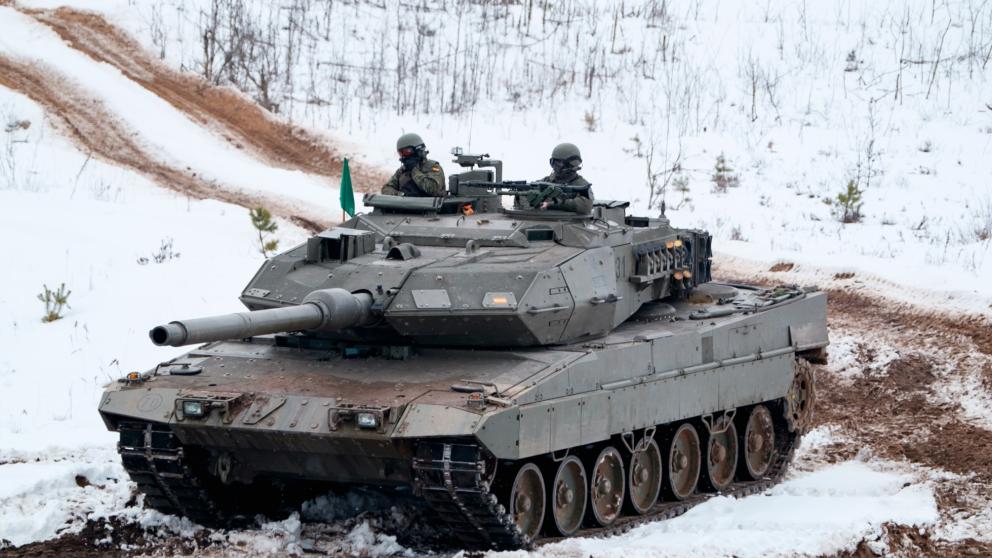Expert comment: Will German decision to send Leopard 2 tanks to Ukraine lead to an escalation in the Ukraine-Russian conflict?

Alaric Searle, Professor of Modern European History at the University of Salford and researcher in German military history comments on the announcement that the Federal German Government will be sending 14 Leopard II main battle tanks to support the Ukrainian Armed Forces in their ongoing conflict with the Russian military.
“In the last few days, the headlines have been dominated by the very public attempts in the NATO Alliance to try and cajole the Federal German Government into sending Leopard II main battle tanks to the Ukrainian Armed Forces, currently locked in a life-and-death struggle with the numerically superior Russian Armed Forces. For several weeks, the German Chancellor Olaf Scholz, of the Social Democratic Party, appeared to be dragging his feet, which was also preventing NATO allies such as Poland from sending their Leopard tanks.
“Political commentators have offered a range of views on the wrangling within NATO, such as Timothy Garton Ash, who regarded the apparent reluctance of the Chancellor as causing considerable public relations damage to the country’s international image. It is the case, nonetheless, that the Chancellor’s insistence that the Americans also send tanks be a condition for a German commitment was a wise position to take.
"Without US involvement, it was highly likely that Putin’s regime would have targeted fragile German public opinion with all manner of threats, including no doubt nuclear escalation, in an attempt to weaken German resolve. In a country which has hammered home an anti-militaristic message to its population over decades, the notion of German tanks (even with Ukrainian insignia) driving across the open terrain of eastern parts of Ukraine is the stuff of political nightmares.
“But given that the first commitment is a paltry fourteen tanks, the decision in the first instance is significant for its political rather than military implications. Not only does it bring the Federal Republic back into line with its NATO partners – Britain is also to send a handful of Challenger II tanks – it readjusts the balance in the ruling coalition with the Green Party and the FDP (Liberals), both of whom have been more outspoken in calling for the delivery of Leopard II tanks. The Foreign Minister, Annalena Baerbock, in particular, has shown a greater commitment to supporting Ukraine, even making visits to Ukrainian territory very close to the frontline.
“The question military commentators are asking, however, is whether this is too little, too late. Including other NATO allies, the number of tanks likely to become available in the next few months will be little over one hundred. The Ukrainian President, Volodymyr Zelenskyy is right that one hundred, highly modern tanks would not been enough to eject Russian forces from eastern Ukraine. Three hundred is much more realistic. Moreover, NATO tanks are more complex than the primitive Soviet-era machines currently being operated by the Ukrainians: this will require extensive training for their crews. In addition, the spectre of NATO tanks blasting Russian machines into burning scraps of metal may well push Putin into bringing forward the planned spring offensive.
“Without doubt, the war will pick up very soon its previous intensity. But the decision to supply Leopard II’s does at least give the Ukrainians a fighting chance of survival.”
Professor Alaric Searle is Professor of Modern European History at the University of Salford. He is a researcher in German military history and amongst many publications, is the author of Armoured Warfare: A Military, Political and Global History (Bloomsbury, 2017)
For all press office enquiries please email communications@salford.ac.uk.
Share:
